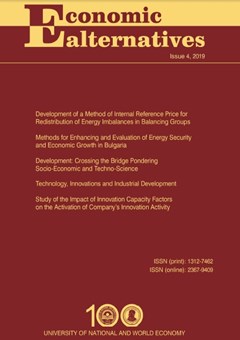An Analysis of Equalizing Capacity of State Transfers for Local Government Activities in Bulgaria
Author: Presiana Nenkova
Abstract
The aim of this paper is to examine the fiscal disparities among local governments in Bulgaria and to show the capabilities of the existing intergovernmental transfer system to reduce them. Fiscal equalization policy in Bulgaria is performed through a general equalization transfer for local activities the distribution of which is based on local government tax revenue, as well as on service delivery costs. We measured the extent of equalization in three years – 2007, 2011 and 2017, during which the equalization transfer formula underwent considerable changes. For 265 municipalities we found out that, although the applied equalization mechanisms reduced the inequality in municipal own-source revenuе the remaining fiscal disparities among local governments were still considerable. Our research also suggests that disparity-reducing strength of the general equalization transfer remained almost unchanged during the period under review with its equalizing potential hampered to a great extent by the inclusion of additional compensatory elements in the distribution formula.

